Computing
Curriculum Intent & Rationale
In today’s world all individuals need technological and information literacy skills, and these skills are as essential as the traditional skills of numeracy and literacy.
Our intention is that all students develop their ability to use computers effectively in their everyday and professional lives and, arguably more importantly, that they develop the skills to be able to continue to do so as those technologies change in the future.
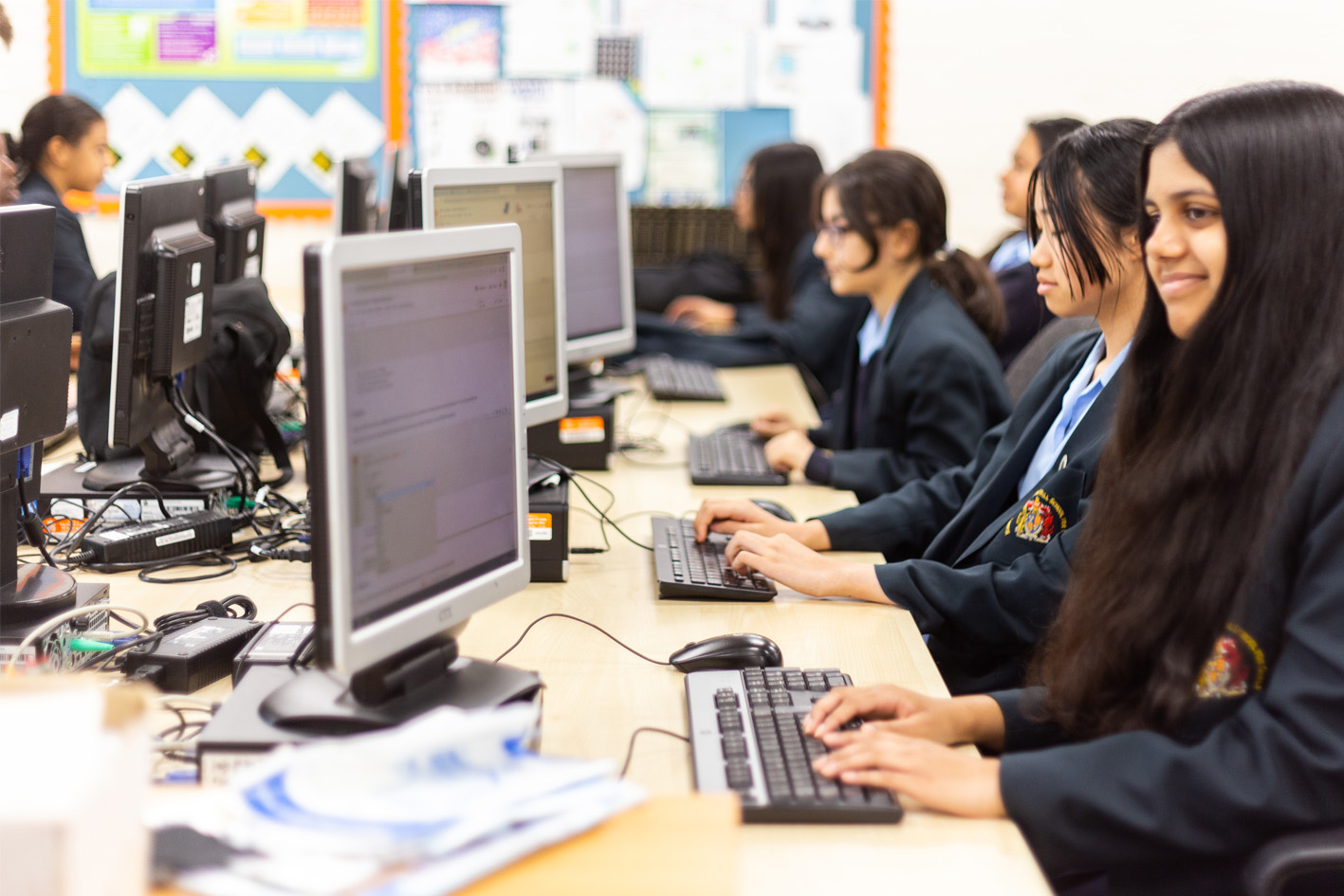
The National Curriculum subject of Computing is made up of at least three different areas:
- Digital Literacy is the ability to use the everyday tools around us. This might mean safely accessing the internet, understanding the need for encryption, being able to type, or understanding of health & safety relating to computer use.
- ICT is the ability to use computers to create digital products. General purpose 'office' software may be commonly used in schools and other workplaces, but skills and knowledge are required to use it well: word processors, spreadsheets, etc. Digital media skills are also part of modern life from editing video/sound/pictures, for example, to creating a website. There are many jobs linked to this kind of work, and it is good fun. It also links in with the other ‘creative arts’ subjects.
- Computer Science is understanding how computers work. All of us need the skills to be able to understand (if not fix) computer systems, and such skills also help with all other kinds of logical problem-solving. Through understanding such systems and learning how to control and program them we can ensure that we make computers do the things we want them to do. The recent growth in ‘apps’ for phones has shown how this gives the opportunity to be creative too – all you need is an idea! In fact programming is a great way to be creative whilst also applying structured processes – you need to develop a whole range of skills to do this well.
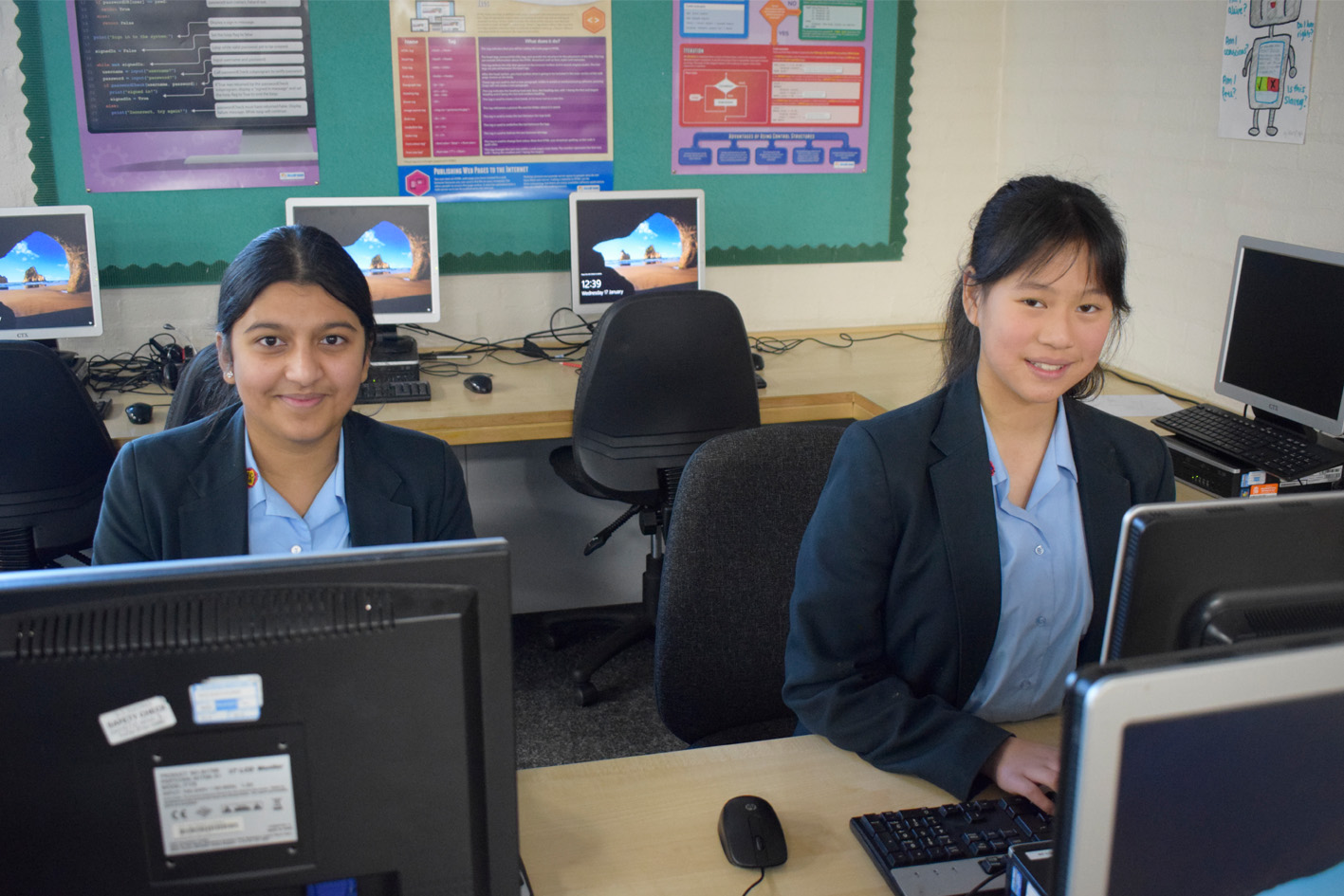
We have chosen to put the primary focus of our curriculum on Computer Science, as this complements the strong mathematical and technical skills our students typically demonstrate and gives them full opportunity to explore this increasingly popular area of study. We are also pleased to actively encourage our students to consider entering what has been a very male-dominated field rather than being passive consumers of computing technology.


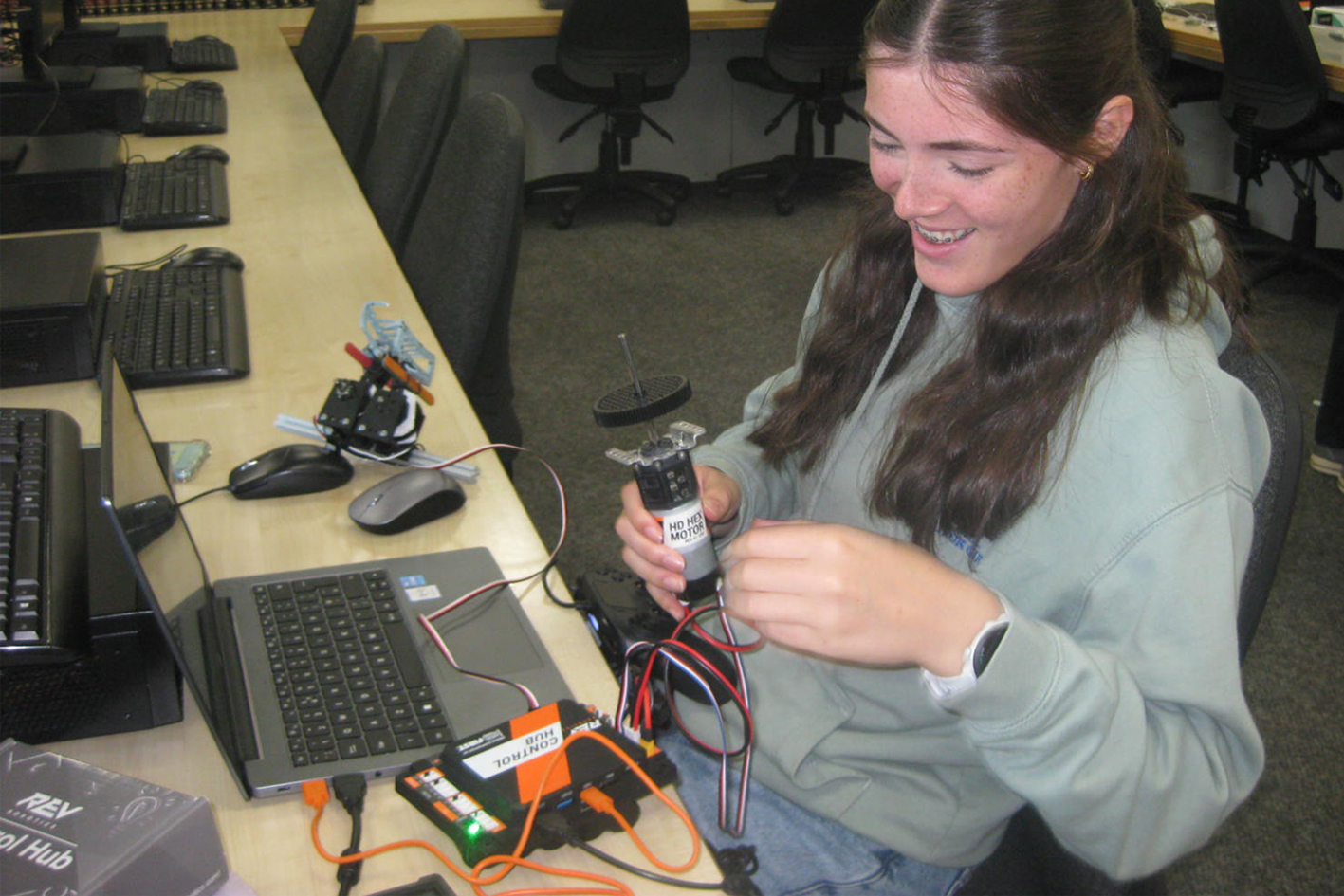
We have been teaching Computer Science to A level since 2008 and have a curriculum designed to introduce appropriately technical topics from Year 7, while still providing appropriate balance with the other areas above. For more detailed information, including the syllabus for each year group, please click on the links below. We always welcome positive suggestions on how our curriculum could be developed further to meet the needs of our pupils.



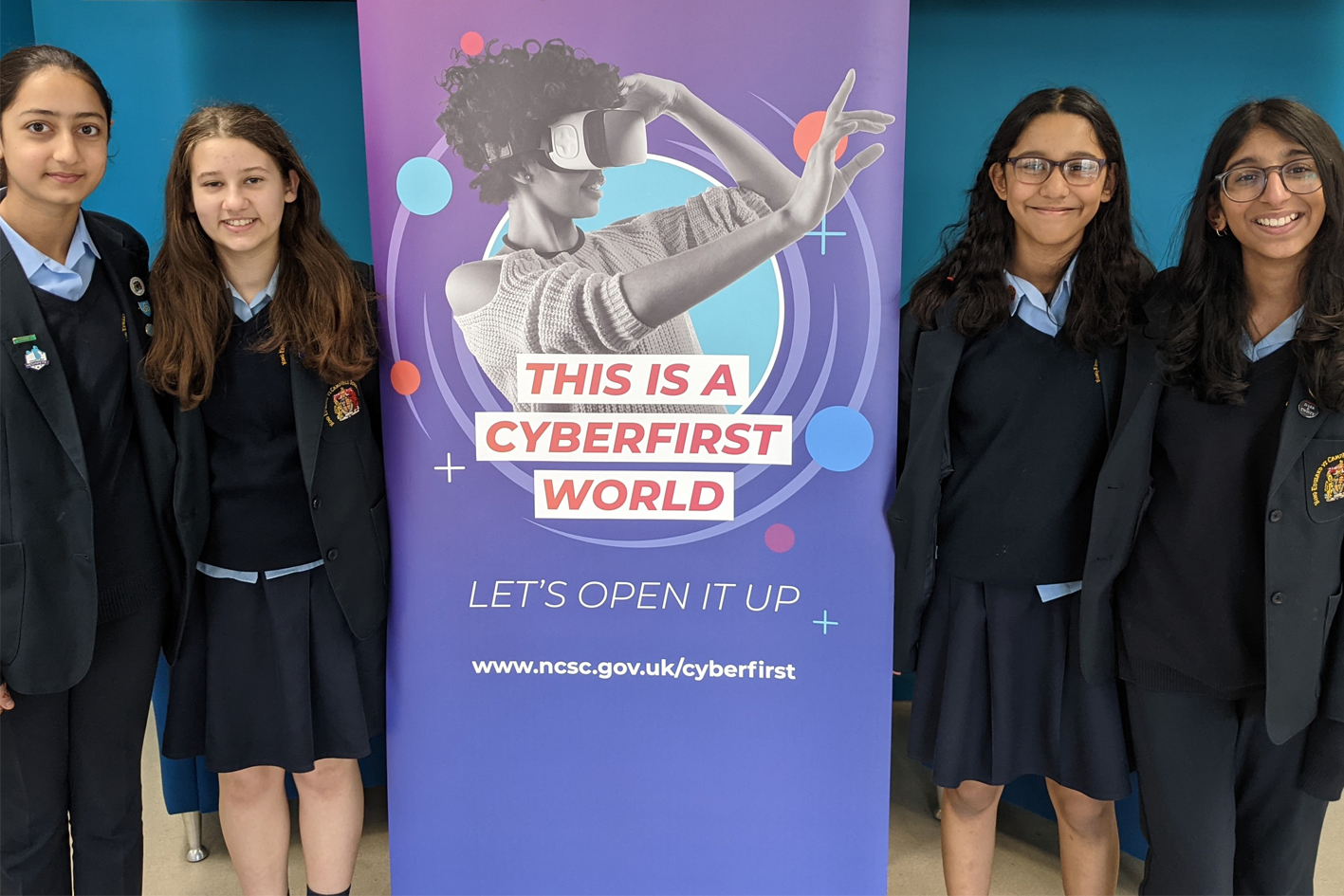
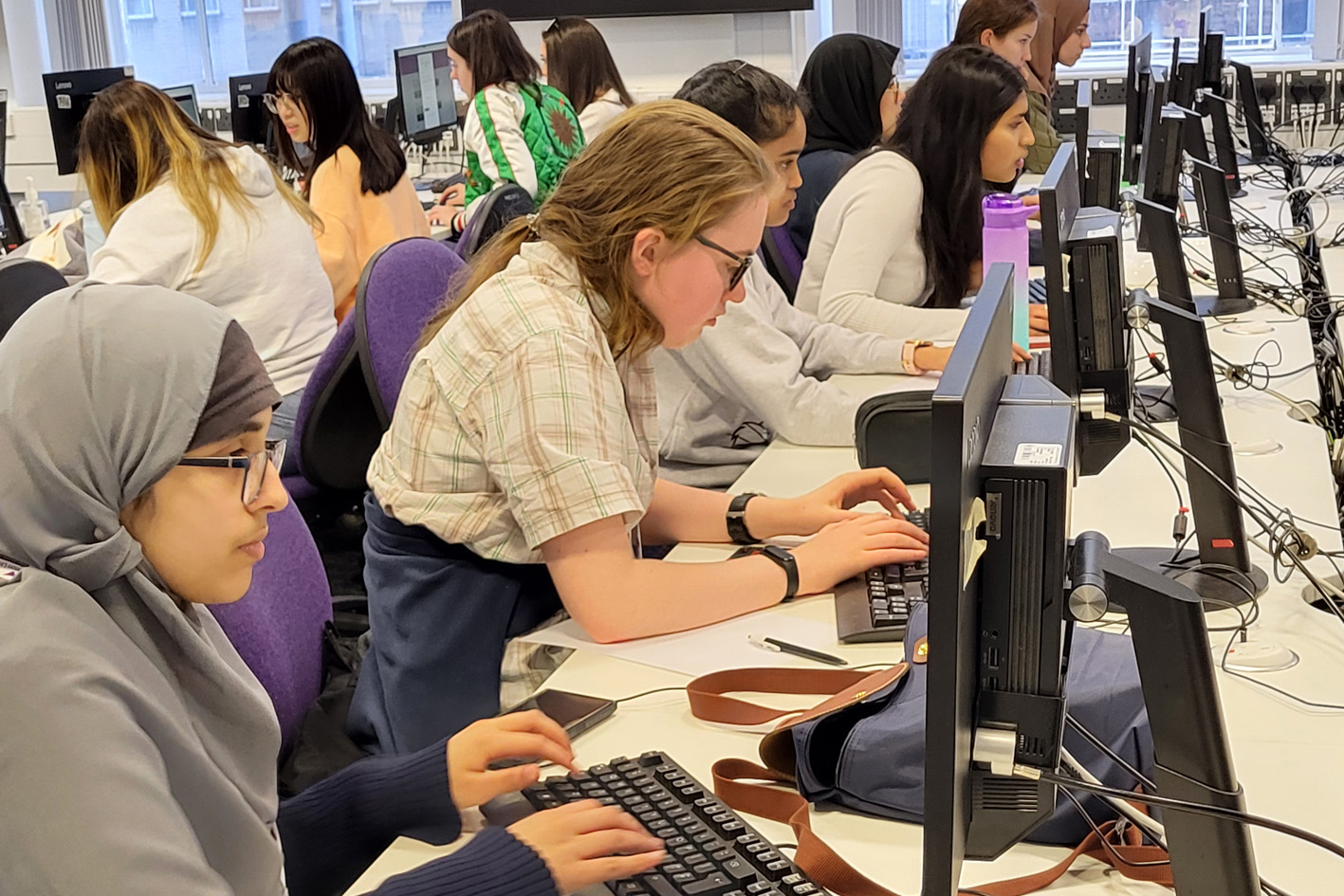
Implementing Our Curriculum
Key Stage 3
While we still aim to develop skills in using various pieces of standard software, particularly in Year 7, we are now putting a greater emphasis on knowledge and on developing and understanding of aspects of Computer Science. This will, for example, include learning at least one text-based programming language by the end of Year 9 (currently Python), and ensuring that web development is initially taught through the use of HTML/CSS rather than through software that may allow design without technical understanding.

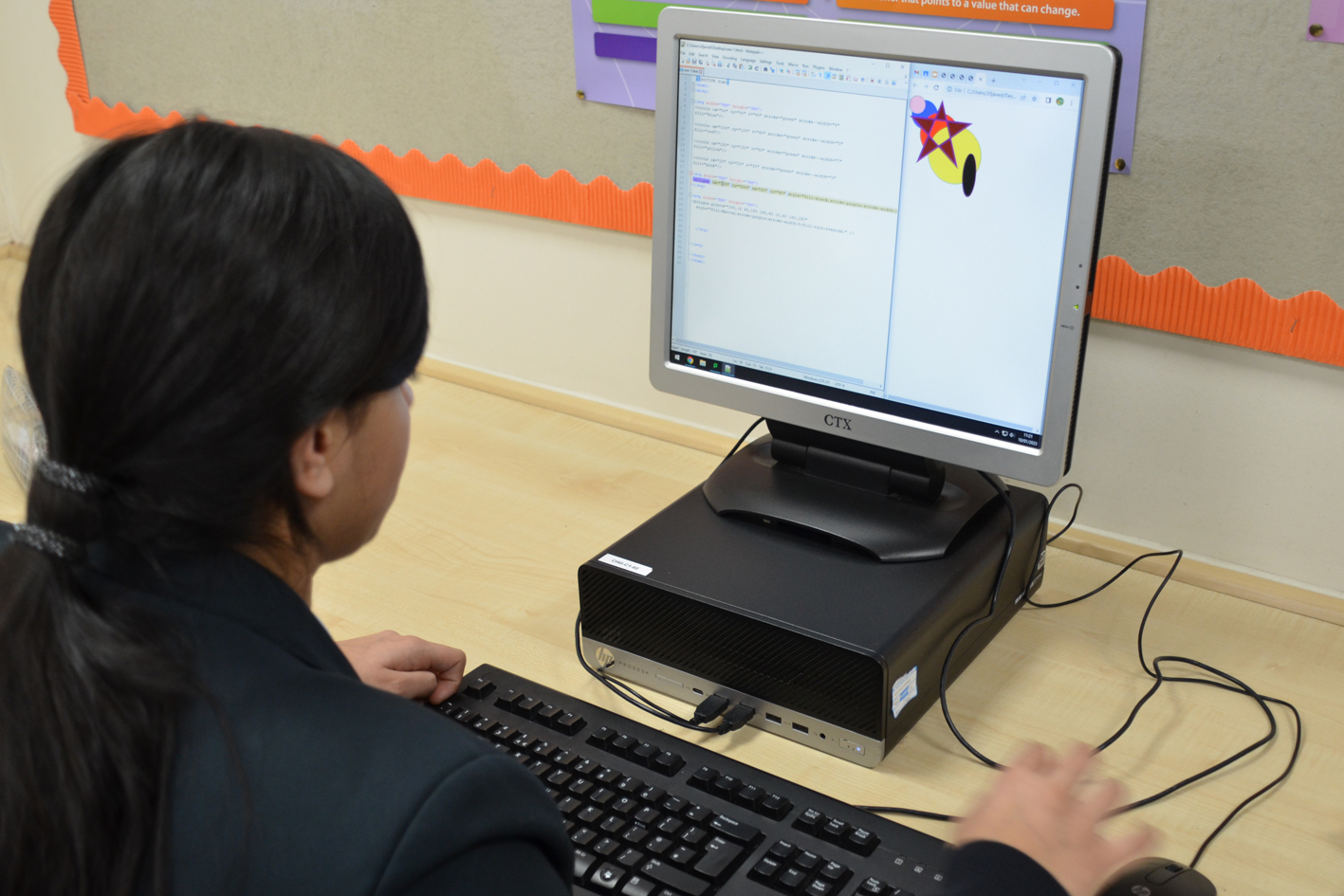
We continue to place an emphasis on developing independence and project management skills through a project-based approach. This means that students will be expected to work both individually, and in groups over extended periods, and to research solutions themselves wherever possible. This approach is important in developing ‘real world’ skills of independence, initiative, team work and time management.
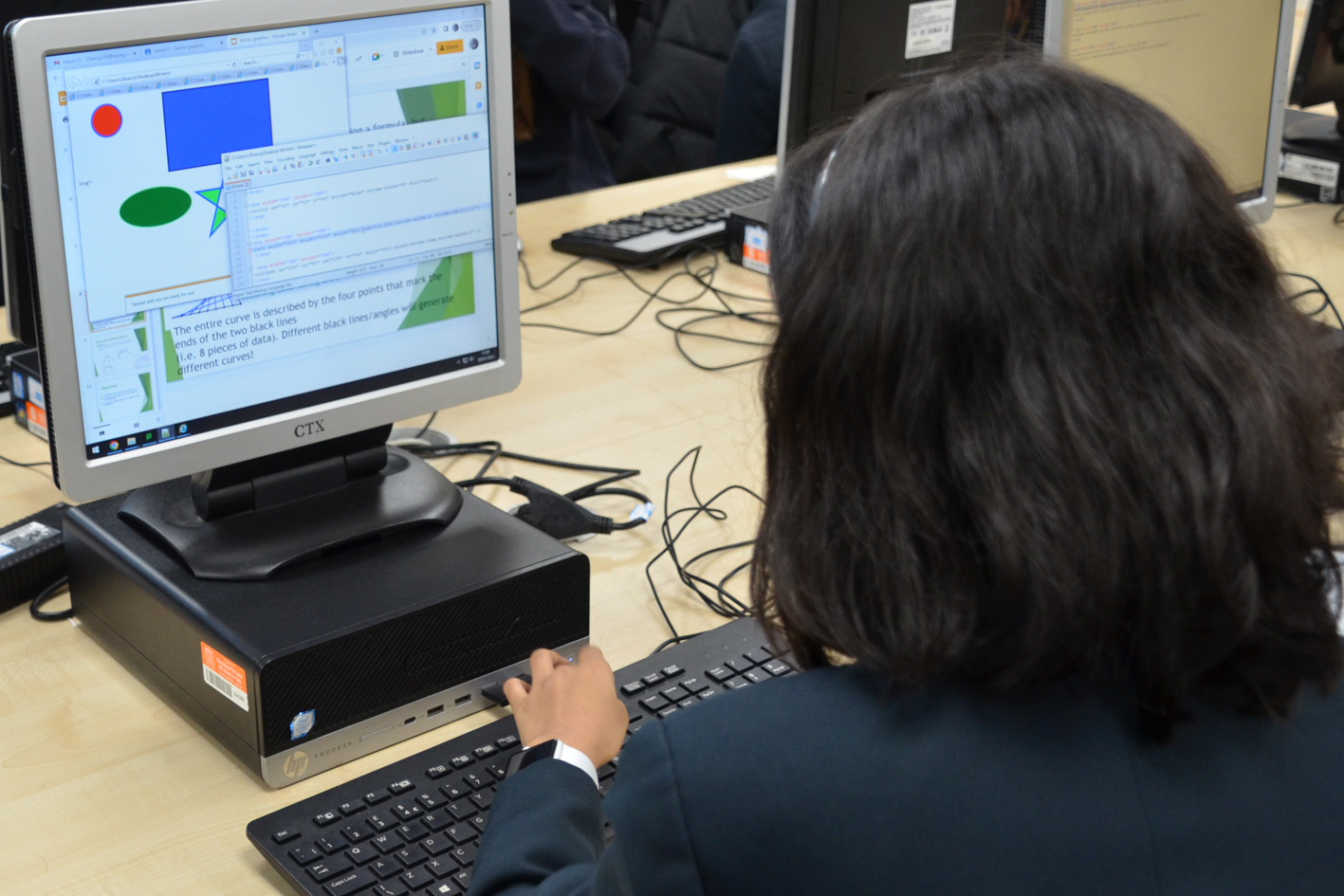
In addition to the work in Computing lessons, all students additionally study aspects of e-safety through the PSHE curriculum and digital graphics through the Art/Graphics curriculum.
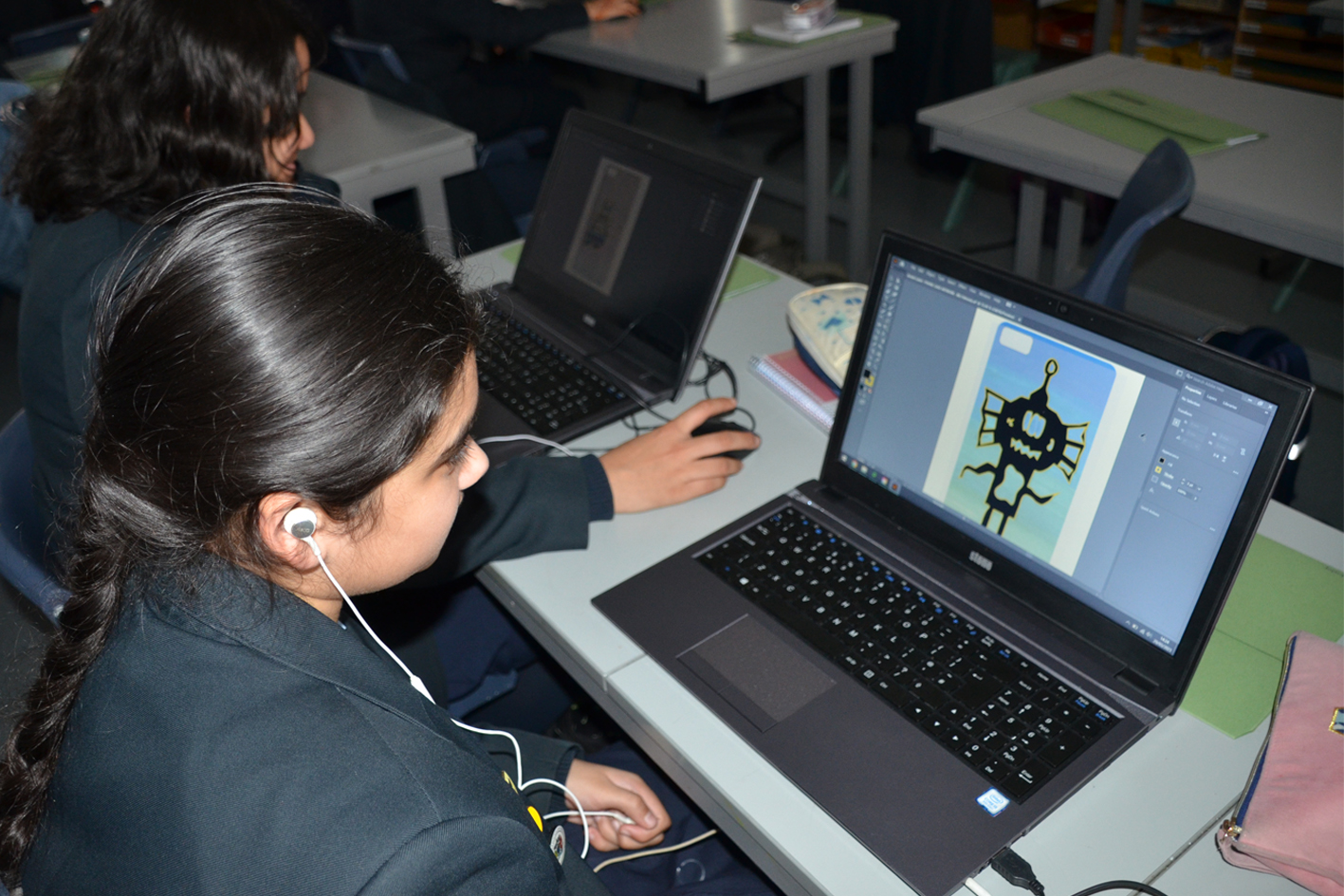
Key Stage 4
Years 10 & 11: GCSE Computer Science – OCR J277
We offer all students the option to study OCR GCSE Computer Science.
This course extends the knowledge & skills taught at KS3, being concerned with how computers work as well as how they are used. Topics covered include how the CPU w6orks, networking, cyber-security, computer ethics, binary, how data is stored, boolean logic and common algorithms.




The course is examined through two 90 minute written papers at the end of Year 11 (each worth 50%).
Programming skills are assessed through these written papers, so a significant proportion of time is spent in developing these so that students have the experience and terminology to access the subject effectively. At present this aspect is taught using Python, although students may use any high-level programming language. Pupils will also have an introduction to assembly language programming.

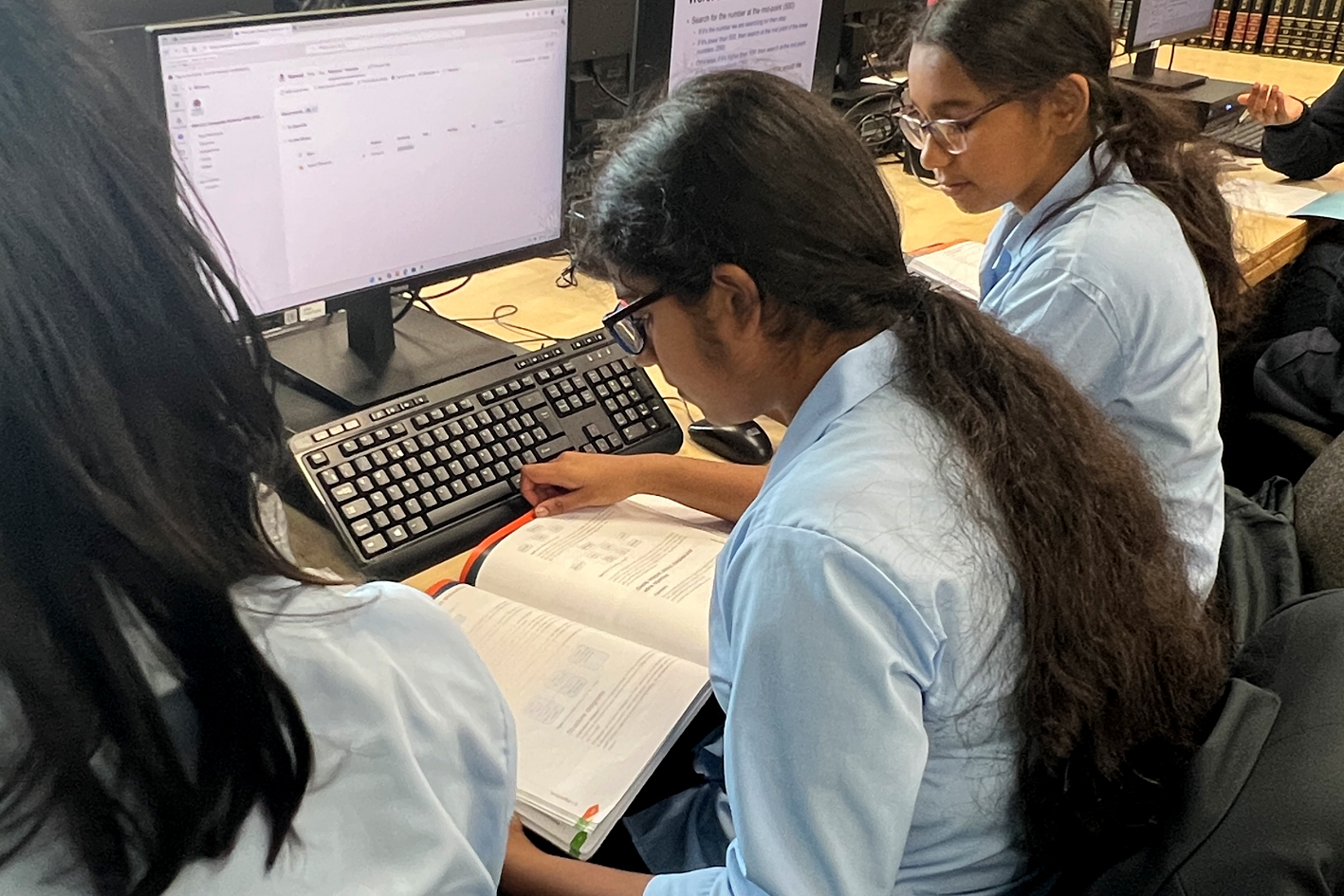
[Please note: the below video applies equally well for CHB/CHG students as the department spans the two schools!]
Key Stage 5
Year 12-13: A Level Computer Science – OCR H446
Students have the option of continuing their studies with the OCR A level Computer Science course. At present, there is an option for CHG students to take this as either a 1 year (AS level - H046) course or as the full A level.
The A level course follows similar topics to the GCSE course, but in greater depth. There is also more emphasis on links between topic areas and a much greater need for analysis and contextual interpretation. Additional topics such as binary normalisation, consideration of 'Big O' algorithmic complexity and the manipulation of boolean algebra mean that there is benefit in having reasonable mathematical skills.


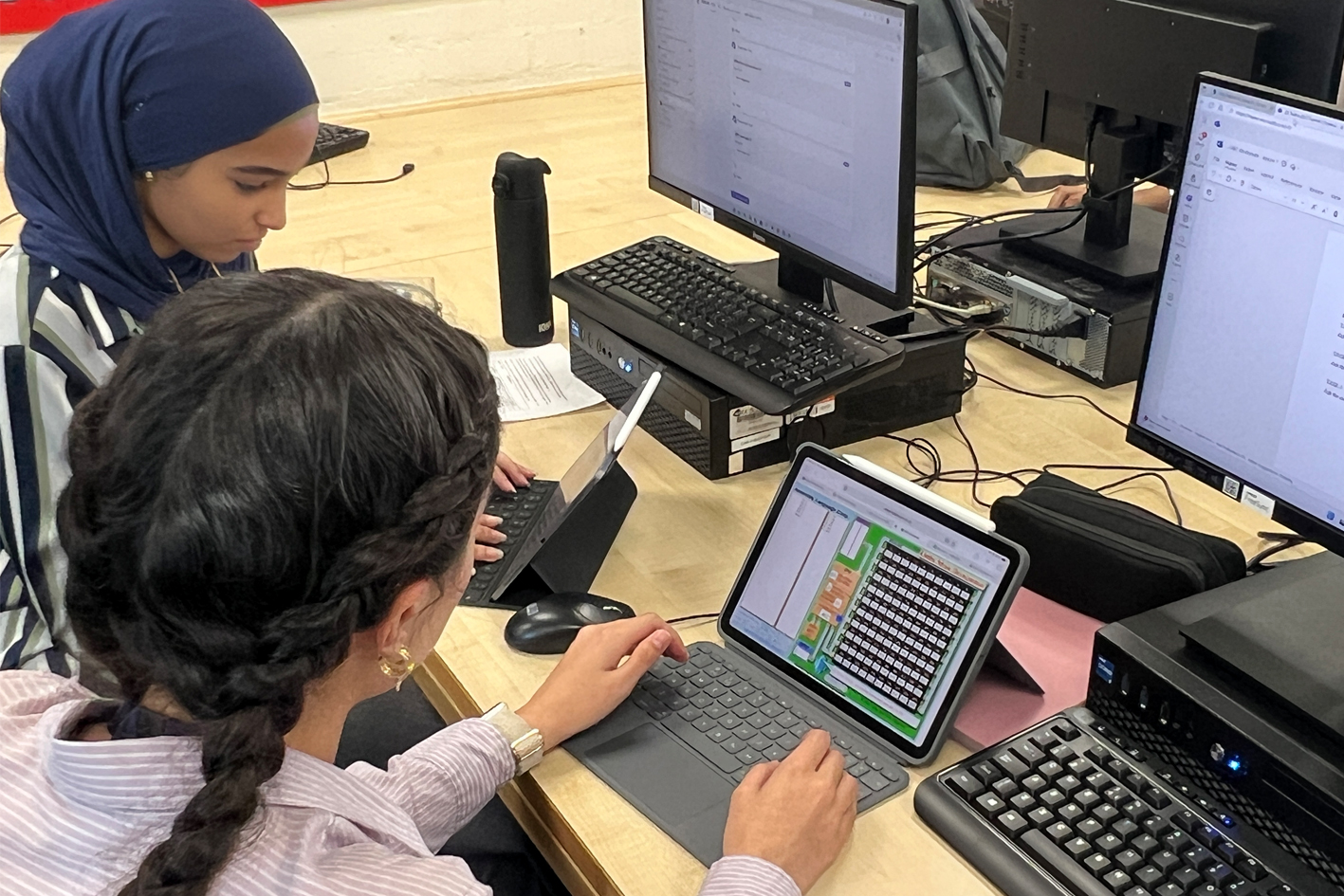
The AS level course is assessed through two 75 minute exam papers at the end of Year 12. The A level course is assessed through two 150 minute exam papers (80%) taken at the end of Year 13, plus a programming project (20%). Lesson time will be given to support the project, which is usually based on the needs of a real 'client'.
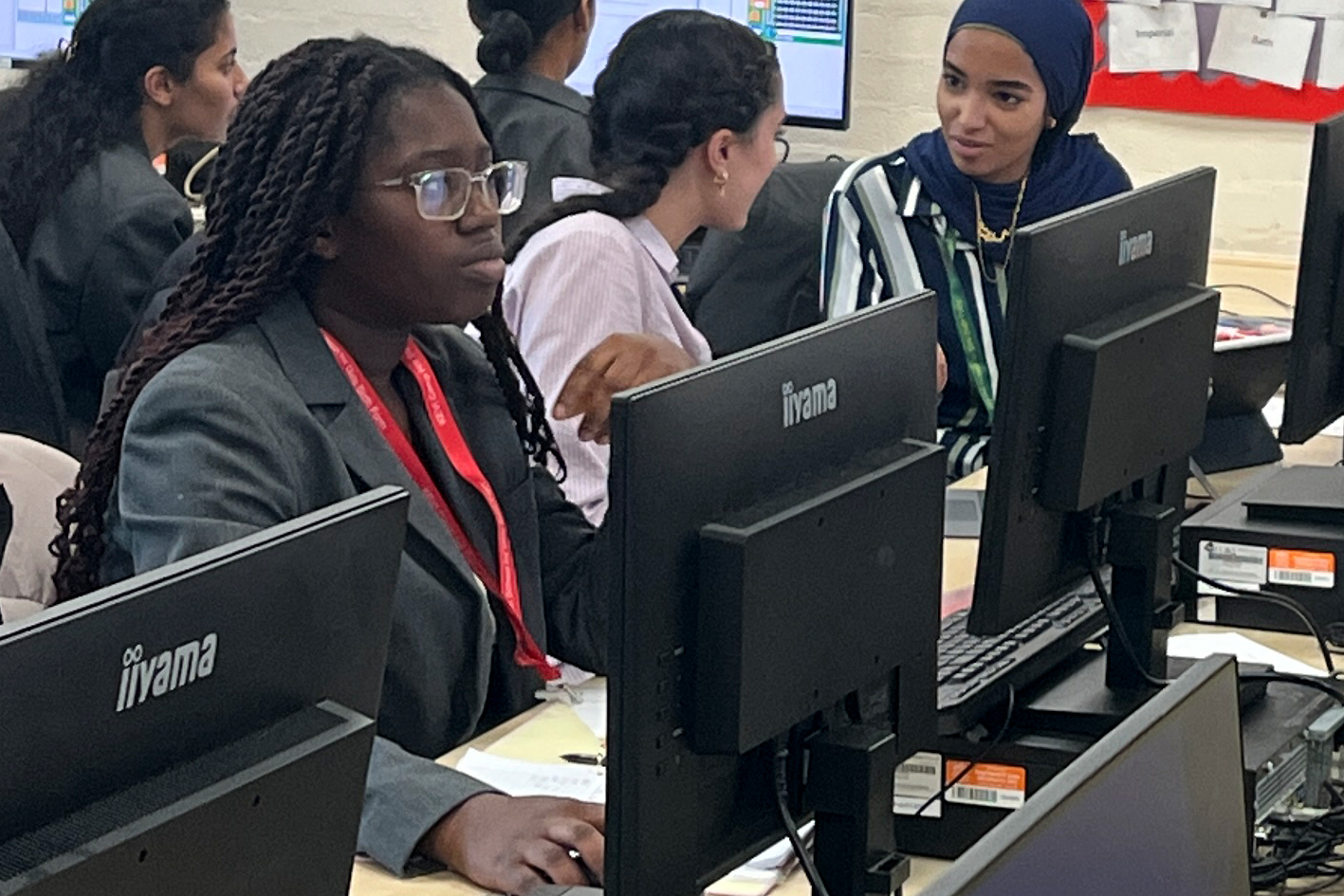
Since 2013-14, this course has been taught jointly with the boys’ school, as a mixed class.
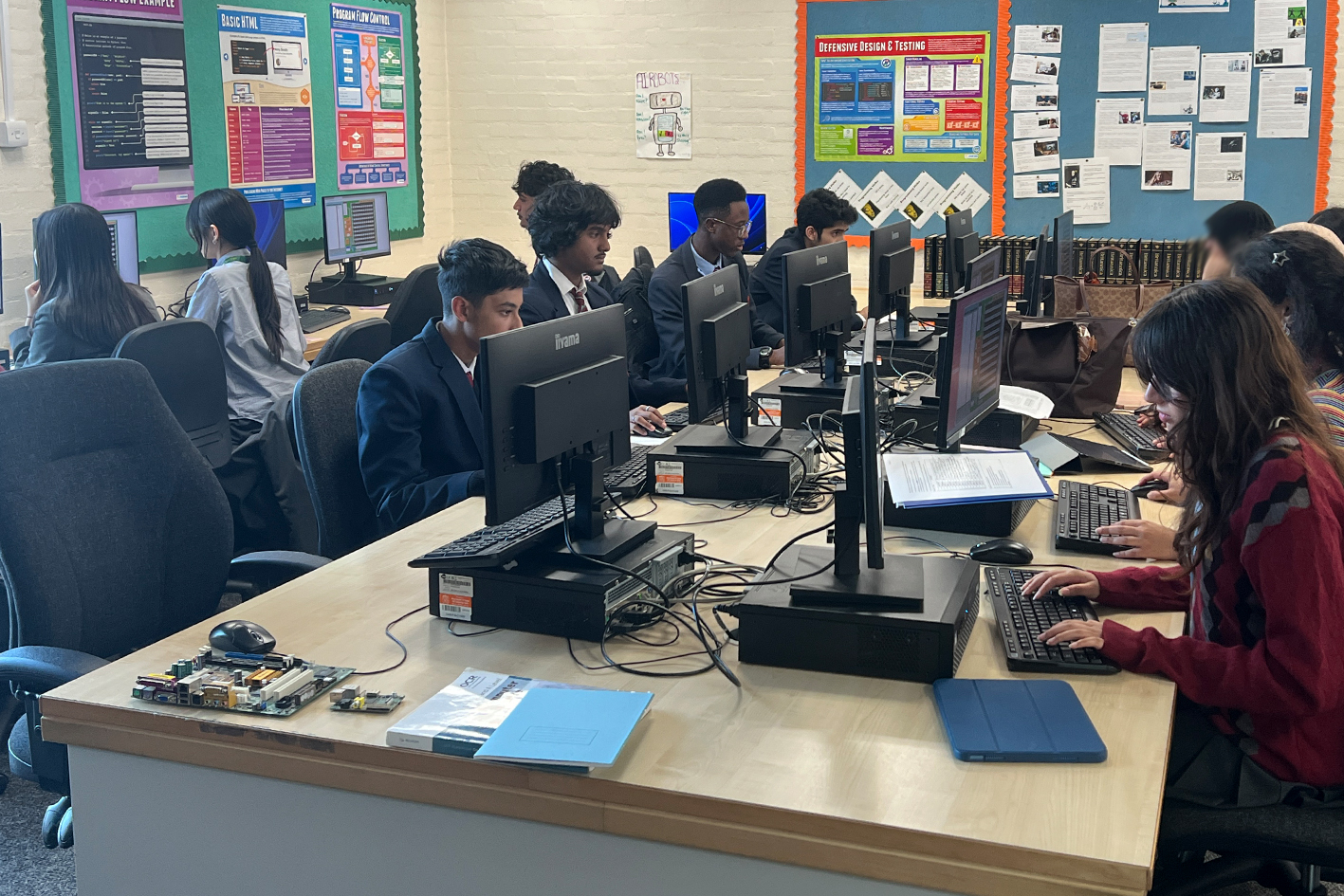
Please note that A level Computer Science is a technically demanding course and certainly not 'all about programming', although strong coding skills are certainly beneficial. Although we recognise that not all students will have had the opportunity to do so, it is recommended that students have either studied GCSE Computing or have a proven interest in computer technology. If you would like to discuss what the course would entail then please contact Mr Frost n.frost@chg.kevibham.org.
Departmental Resources
The department operates across both the Camp Hill schools and has three full-size computer suites, each containing 32 pupil machines (two at the girls’ school and one at the boys’). Each machine is equipped with up to date software including Windows, MS Office, etc. We have a policy of using free software wherever possible, so there is no need for students to purchase software.

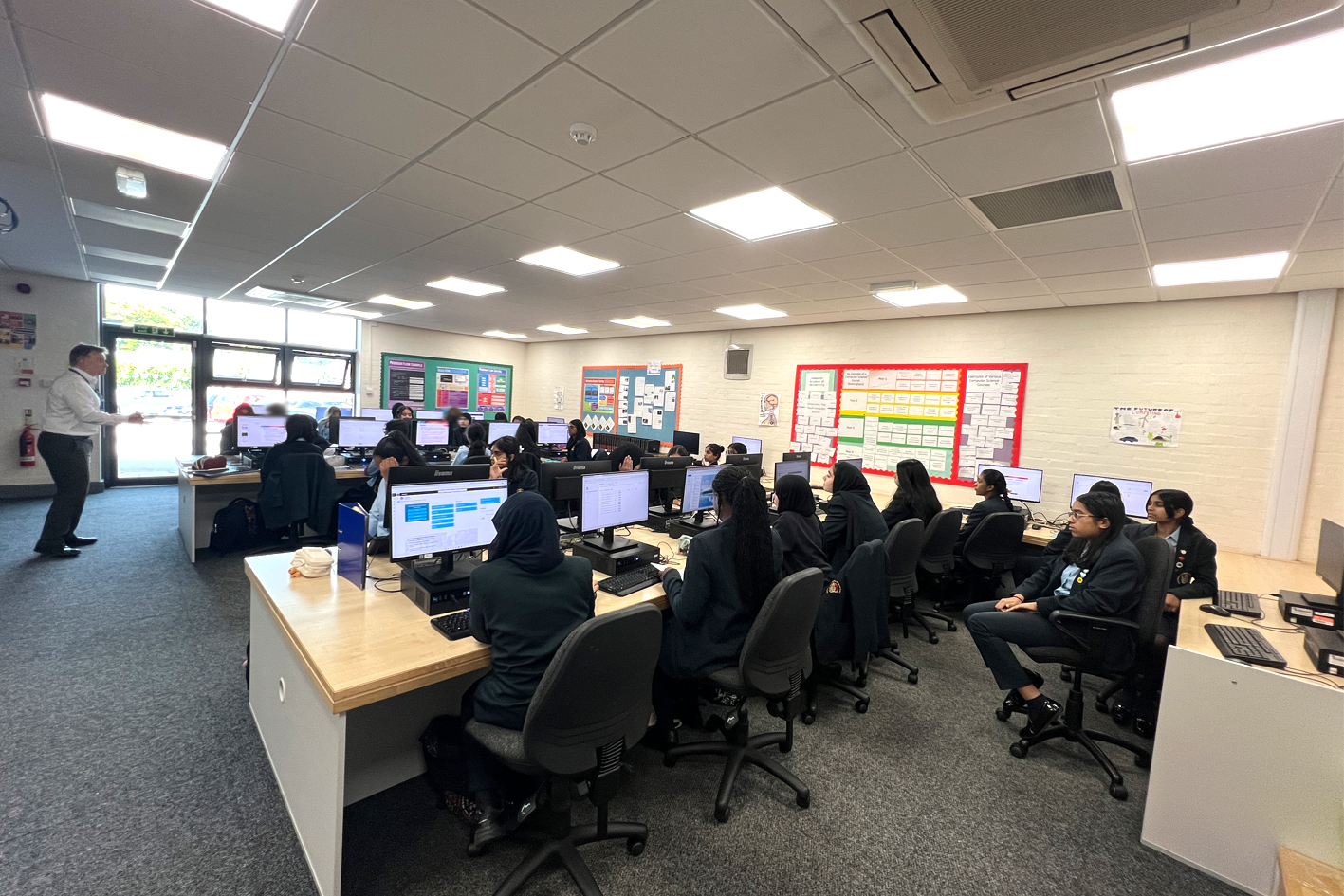
Computing is not about computers any more. It is about living.
Nicholas Negroponte
